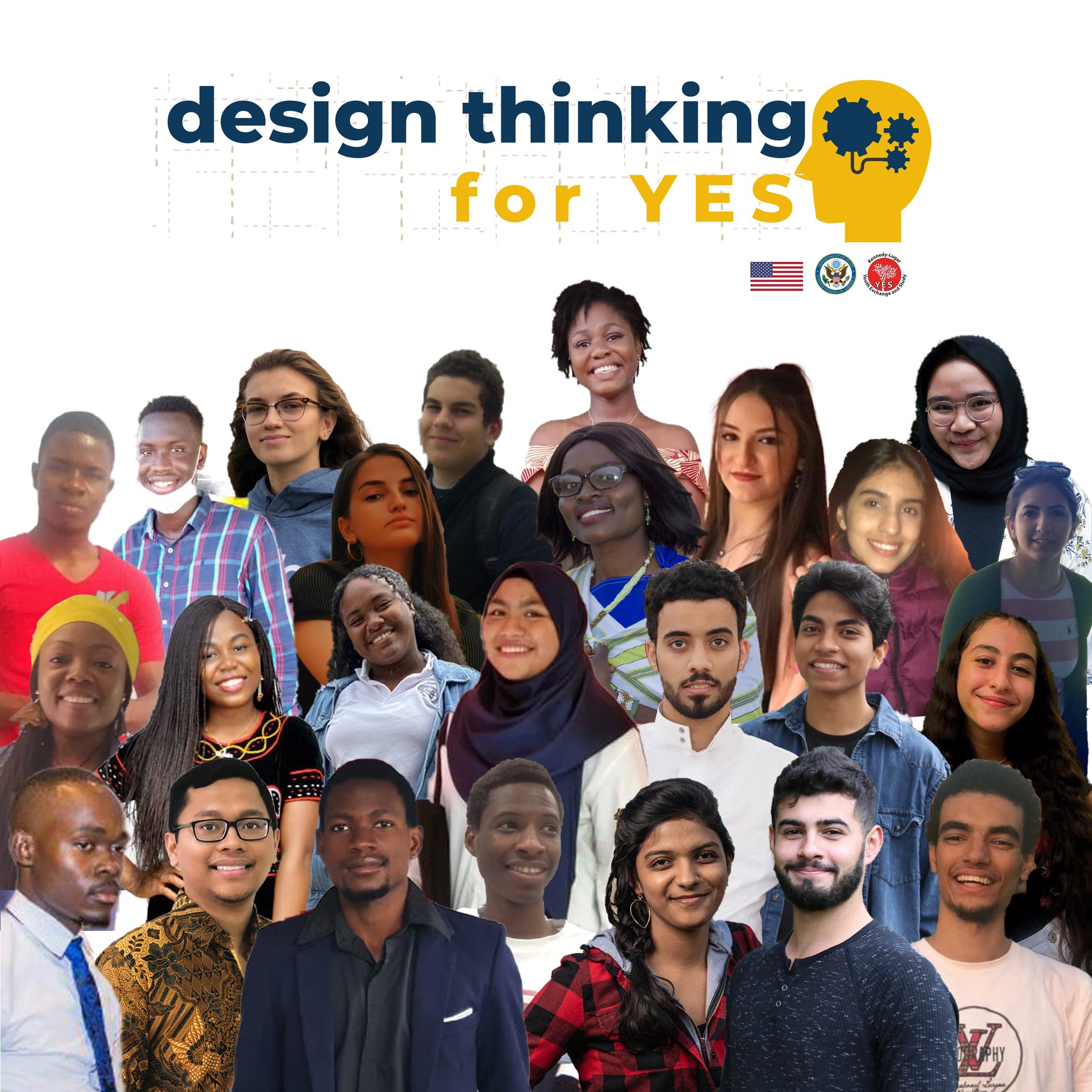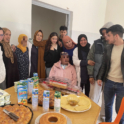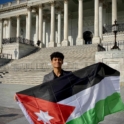Maryame has taken the lessons learned from her exchange year to make a difference in her community.
STORIES
Reflections on "Design Thinking for YES" Workshop

Co-written by: Fortune Thiao (YES 2015-2016, Senegal, placed with AYUSA in Nampa, ID), Shifa Naaz (YES 2018-2019, India, placed with Aspect in Lakebay, WA), Dolcie Kailie (YES 2019-2020, Sierra Leone, placed with AYA in Kalamazoo, MI), Daniel Valai (YES 2017-2018, Liberia, placed with IRIS in Altoona, IA), and Mamadou Doucoure (YES 2016-2017, Mali, placed with Aspect in Oakford, IL)
Twenty-five YES alumni from 24 countries are currently attending the virtual YES alumni workshop, Design Thinking for YES. Design thinking is a mindset that aims to approach an issue or opportunity in an iterative and non-linear process. It requires us to challenge our perceptions and assumptions, and to always keep the people at the center of our thinking.
The funny thing is when we first heard of design thinking, we thought it's all about creating physical objects and designing the outside to make it look great. But as we started with our weekly sessions for the workshop, our minds began to open to the diversity of this very important idea summed up in a few words called "Design Thinking". This workshop is like a short exchange program for us because we are getting to know people from 24 different countries, learning different things from them, and indulging in their cultural views.
During our first week of the session, we learned about the different steps of designing a project through the design thinking compass. Through conversations with our fellow YES alumni and the workshop facilitators, we have learned how important it is to consider and respect the dignity of the community we are designing a project for or with. Any project that goes against the community is going to be a failure. A main part of any project should be respecting and showing dignity to the people in the community, since a project or intervention could be life-changing for them. Values and traditions should always be given respect and preference or else your project won’t be successful — this was the main lesson we learned from the second session.
Even the icebreakers we do at the start of every session teach us to think differently. For example, our first icebreaker underscored the importance of teamwork and helping one another. The second icebreaker activity, which was switching our outfit, taught us that we can face unexpected challenges or problems throughout designing, and we should be prepared to come up with some quick solutions. Additionally, we have been developing core competencies skills independently.
We must say design thinking is an old yet innovative idea to solve social problems which exist in our communities. The workshop teaches techniques such as a dignity-centered approach that puts the people in the center of every solution proposed. The ideas of positive deviants, and including the targeted community in the developmental processes or solution search, as well as doing the project with or allowing it to be done by the community, are all great pieces of knowledge that we have learned at this workshop thus far. As people, this workshop enlightens our ideas and guides us to think about various aspects that have never crossed our minds before while drafting projects or brainstorming ideas. With the level of simplifying activities we have gone through, which is making us speedily understand the idea of design thinking, we believe that we all shall be the design thinkers that we wish to be at the end of this workshop.
We are so excited about the upcoming weeks — we still have three more weeks of instruction — and we are so happy that we applied for this workshop. It has been an educational, interactive, and interesting journey that we look forward to every Friday.





